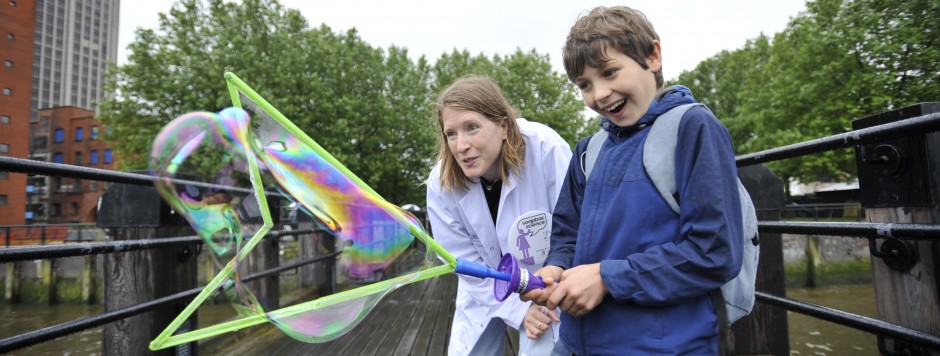A/Professor Vicki Clifton is a is a National Health and Medical Research Council Senior Research Fellow who is currently a Professorial Research Fellow with the Mothers and Babies Theme at Mater Medical Research Institute in Brisbane Australia, leading the Pregnancy and Development team. Her current research focusses on the impact of maternal asthma and other health complications during pregnancy on placental function, fetal growth and childhood development with a specific interest in allergy.
 I never imagined doing a PhD. I grew up in a low socioeconomic area of Australia with few aspirations and where it was cool to be dumb. Bullying and violence were just a part of normal life and anyone who was different was ostracised and ridiculed. Women were under-valued overall within our society and viewed as mostly mothers and housewives. Women who did work were often criticised for working and not taking care of their family. However my family were intelligent and loving and the women in my family were strong and motivated. They ran their own businesses, worked hard and had careers. These women were a shining beacon for me. So I knew at an early age I would be like them. Yet, my path to science would prove to be a bit different from the usual.
I never imagined doing a PhD. I grew up in a low socioeconomic area of Australia with few aspirations and where it was cool to be dumb. Bullying and violence were just a part of normal life and anyone who was different was ostracised and ridiculed. Women were under-valued overall within our society and viewed as mostly mothers and housewives. Women who did work were often criticised for working and not taking care of their family. However my family were intelligent and loving and the women in my family were strong and motivated. They ran their own businesses, worked hard and had careers. These women were a shining beacon for me. So I knew at an early age I would be like them. Yet, my path to science would prove to be a bit different from the usual.
The first hurdle for me was being able to attend university. My parents could afford to pay for the administration fee and some text books but not tuition fee. Luckily, at that time, University was free in Australia! If it had been today, then I expect I would not have been able to go to Uni. Once I was at University, however, it opened my mind to a plethora of information and opportunities and eventually led me to postgraduate studies.
I believe that it is important to choose a topic for your PhD in an area that interests you and you are passionate about. I am passionate about pregnancy and healthy babies which lead me into the field of placentology and examining the role of the placenta in fetal survival and this passion comes from a deeply personal experience. I had a miscarriage at 20 weeks gestation and aside from it being a totally devastating experience, I questioned what happened. There was no clinical explanation for the miscarriage as technically after 12 weeks things should run smoothly with the pregnancy and I found that “no explanation” was a frustrating answer. Just after this event an opportunity arose to do a PhD on the placenta and so I decided maybe I could find the answers through research.
Another difference in my career path relative to anyone else relates to the choices I made in relation to motherhood. I completed my undergraduate and postgraduate studies on a part time basis because I was pregnant and caring for my children and I needed to make money to survive outside of my study. I loved being a mum and taking the time to be with my kids. It’s just taken me longer to climb the ladder. That was my choice.
Finally, I would not have a career in science if it were not for a group of men. The people who have encouraged me to do postgraduate study, who gave me my first job, who supported me during my PhD and postdoctoral studies were all men. Each of them taught me a great deal about how to work towards a career in science and I am incredibly grateful for their support and encouragement. I never felt discriminated against and when I worked hard, achieved my goal, I was aptly rewarded.
What made me succeed against all odds is that I like a challenge and I like the competition. I want to see how far I can go. I never listened to anyone’s views on the subject of me because if I did, I’d probably still be in my home town doing very little. I never feared failure. It hurts to fail but it hurts more to give up. A new challenge does scare me but it excites me too- can I do it? Will I fail or will I have success? Some challenges don’t work out how you planned but you often realise retrospectively it was for the best that things happened a certain way. So don’t fear the challenge of a PhD if you know you are passionate about the topic and you know you are fascinated by science.
My advice for anyone who wants a career in science and embarking on a PhD is “go for it!”. It is an experience that challenges every aspect of your self- your resilience, your identity, your relationships, your intellect. It is an intellectual marathon with data! I loved and hated the experience of a PhD but at the end of my PhD I felt a great sense of accomplishment and capability. I knew I could be a scientist and I could survive any career challenge that was given to me.

 By Vicki Clifton
By Vicki Clifton